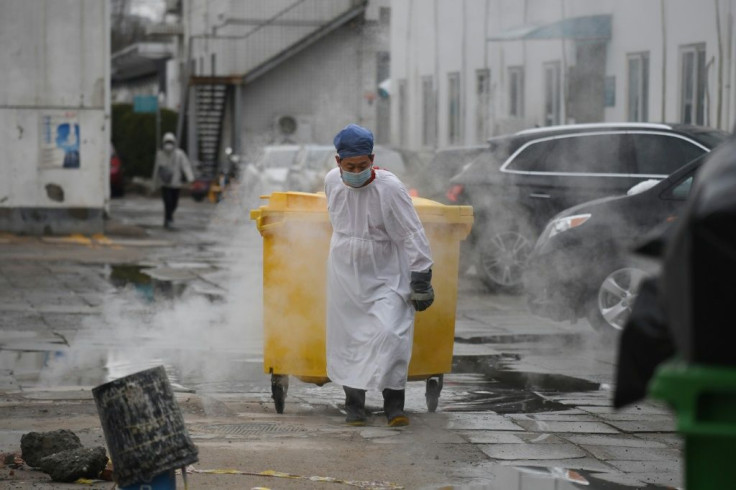China to Ban Trade, Consumption Of Wild Animals Amid Coronavirus Outbreak

Two months after the Covid-19 virus was first detected in Wuhan, the Chinese government is moving to “fast-track” a ban on the trade and consumption of wild animals. On Feb. 24, the Standing Committee of the National People’s Congress (NPC) will review the ban, according to the Chinese official news agency Xinhua.
The predominate theory of where the virus made the leap from animal to human is a seafood market in Wuhan in the Hubei district that also sold wild animals alive or for consumption.
Metro News reports of a recent paper from the Beijing-sponsored South China University of Technology that offers an alternative story claiming that the city’s Center for Disease Control, located about 300 yards away from the market, could have been the source. The center housed animals used for research that included over 600 bats.
The paper claims that the bats attacked and urinated on one researcher who quarantined himself for 28 days. Another theory that has been largely debunked is that the virus was the product of some genetic engineering attempt that went awry.
China has a rich history of traditional Chinese medicines that include benign plant-based ingredients like ginger root, ginkgo biloba, and ginseng to produce thousands of herbal concoctions. But when the ingredients are of an animal source like deer penis, flying squirrel feces and even human origin, the eyes of virologists and epidemiologists everywhere will be raised.
China has some laws on the books to regulate the trade of wild animals. A 1988 law has been revised three times, but according to legal experts and those with some knowledge of the industry, the law is full of loopholes and thus ineffective. Laws that ban the consumption of wild animals and captive breeding for commercial purposes are at best weak or do not exist.
One expert, Wang Canfa, a professor in environmental laws at China University of Political Science and Law in Beijing said it would be better for the NPC Committee to simply pass a motion to ban consumption of wild animals totally rather than go through an arduous legal process to amend existing law.
Another expert, Zhou Ke, a professor on environmental and resources law at Renmin University, said animal traders, farm owners and even local officials might resist any bans. He said, “People still have different opinions on whether China should impose a total ban on the commercial use of wild animals, and it’s hard for the lawmakers to reach a consensus in a relatively short period of time. By comparison, it would be much easier for the Standing Committee members to agree.”
Meanwhile, Al Jazeera is reporting that the latest death count is approaching 1,900 with confirmed cases in China to over 72,000.
© Copyright IBTimes 2024. All rights reserved.




















